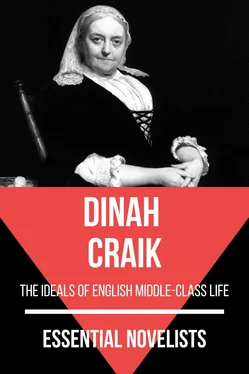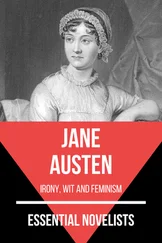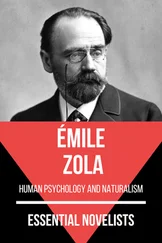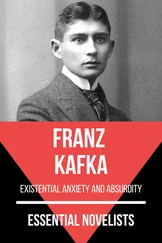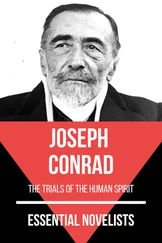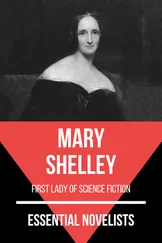Mrs. Tod conversed as if she took it for granted I was fully acquainted with all the prior history of her inmates, or any others that she mentioned — a habit peculiar to Enderley folk with strangers. It was generally rather convenient, and it saved much listening; but in this case, I would rather have had it broken through. Sometimes I felt strongly inclined to question her; but on consulting John, he gave his veto so decidedly against seeking out people’s private affairs in such an illicit manner that I felt quite guilty, and began to doubt whether my sickly, useless, dreaming life, was not inclining me to curiosity, gossip, and other small vices which we are accustomed — I know not why — to insult the other sex by describing as “womanish.”
As I have said, the two cottages were built distinct, so that we could have neither sound nor sight of our neighbours, save upon the neutral ground of Mrs. Tod’s kitchen; where, however I might have felt inclined to venture, John’s prohibition stopped me entirely.
Thus — save the two days when he was at home, when he put me on his mare’s back, and led me far away, over common, and valley, and hill, for miles, only coming back at twilight — save those two blithe days, I spent the week in dignified solitude, and was very thankful for Sunday.
We determined to make it a long, lovely, country Sunday; so we began it at six a.m. John took me a new walk across the common, where — he said, in answer to my question — we were quite certain NOT to meet Miss March.
“Do you experimentalize on the subject, that you calculate her paths with such nicety? Pray, have you ever met her again, for I know you have been out most mornings?”
“Morning is the only time I have for walking, you know, Phineas.”
“Ah, true! You have little pleasure at Enderley. I almost wish we could go home.”
“Don’t think of such a thing. It is doing you a world of good. Indeed, we must not, on any account, go home.”
I know, and knew then, that his anxiety was in earnest; that whatever other thoughts might lie underneath, the sincere thought of me was the one uppermost in his mind.
“Well, we’ll stay — that is, if you are happy, John.”
“Thoroughly happy; I like the dashing rides to Norton Bury. Above all, I like coming back. The minute I begin to climb Enderley Hill, the tan-yard, and all belonging to it, drops off like an incubus, and I wake into free, beautiful life. Now, Phineas, confess; is not this common a lovely place, especially of a morning?”
“Ay,” said I, smiling at his energy. “But you did not tell me whether you had met Miss March again.”
“She has never once seen me.”
“But you have seen her? Answer honestly.”
“Why should I not? — Yes, I have seen her — once or twice or so — but never in any way that could annoy her.”
“That explains why you have become so well acquainted with the direction of her walks?”
He coloured deeply. “I hope, Phineas, you do not think that — that in any way I should intrude on or offend a lady?”
“Nay, don’t take it so seriously — indeed, I meant nothing of the kind. It would be quite natural if a young man like you did use some pains to look at such a ‘cunning piece of Nature’s handiwork’ as that apple-cheeked girl of seventeen.”
“Russet apple. She is brown, you know — a real ‘nut-brown mayde,’” said John, recovering his gay humour. “Certainly, I like to look at her. I have seen many a face that was more good-looking — never one that looked half so good.”
“Sententious that;” yet I could not smile — he spoke with such earnestness. Besides, it was the truth. I myself would have walked half-way across the common any day for a glance at Miss March. Why not he?
“But, John, you never told me that you had seen her again!”
“Because you never asked me.”
We were silent. Silent until we had walked along the whole length of a Roman encampment, the most perfect of the various fosses that seamed the flat — tokens of many a battle fought on such capital battleground, and which John had this morning especially brought me to look at.
“Yes,” I said at last, putting the ending affirmative to a long train of thought, which was certainly not about Roman encampments; “yes, it is quite natural that you should admire her. It would even be quite natural, and not unlikely either, if she —”
“Pshaw!” interrupted he. “What nonsense you are talking! Impossible!” and setting his foot sharply upon a loose stone, he kicked it down into the ditch, where probably many a dead Roman had fallen before it in ages gone by.
The impetuous gesture — the energetic “impossible,” struck me less than the quickness with which his mind had worked out my unexpressed thought — carrying it to a greater length than I myself had ever contemplated.
“Truly, no possibilities or impossibilities of THAT sort ever entered my head. I only thought you might admire her, and be unsettled thereby as young men are when they take fancies. That would grieve me very much, John.”
“Don’t let it then? Why, I have only seen her five times; I never spoke to her in my life, and most probably never shall do. Could any one be in a safer position? Besides,” and his tone changed to extreme gravity, “I have too many worldly cares to think of; I can’t afford the harmless little amusement of falling in love — so be easy, Phineas.”
I smiled; and we began a discussion on camps and fosses, vallum and praetorium; the Danes, Saxons, and Normans; which, doubtless, we carried on to a most learned length: but at this distance of time, and indeed the very day after, I plead guilty to having forgotten all about it.
That long, quiet Sunday, when, I remember, the sun never came out all day, but the whole earth and sky melted together in a soft, grey haze; when we lay on the common and heard church-bells ringing, some distant, some near; and, after all was quiet, talked our own old sabbath talks, of this world and the world to come; when, towards twilight, we went down into the beech-wood below the house, and sat idly there among the pleasant-smelling ferns; when, from the morning to the evening, he devoted himself altogether to my comfort and amusement — to perfect which required of him no harder duty than to be near me always; — that Sunday was the last I ever had David altogether for my own — my very own.
It was natural, it was just, it was right. God forbid that in any way I should have murmured.
About ten o’clock — just as he was luring me out to see how grand the common looked under the black night, and we were wondering whether or no the household were in bed — Mrs. Tod came mysteriously into the parlour and shut the door after her. Her round, fresh face looked somewhat troubled.
“Mr. Halifax, might I speak a word to ‘ee, sir?”
“With pleasure. Sit down, Mrs. Tod. There’s nothing wrong with your children?”
“No, I thank’ee. You are very kind, sir. No, it be about that poor Miss March.”
I could see John’s fingers twitch over the chair he was leaning on. “I hope —” he began, and stopped.
“Her father is dreadful bad to-night, and it’s a good seven-mile walk to the doctor’s at S——; and Miss March says — that is, she don’t, for I bean’t going to tell her a word about it — but I think, Mr. Halifax, if I might make so bold, it would be a great kindness in a young gentleman like you to lend Tod your mare to ride over and fetch the doctor.”
“I will, gladly. At once?”
“Tod bean’t come in yet.”
“He shall have the mare with pleasure. Tell Miss March so — I mean, do not tell her, of course. It was very right of you to come to us in this way, Mrs. Tod. Really, it would be almost a treat to be ill in your house — you are so kind.”
Читать дальше
